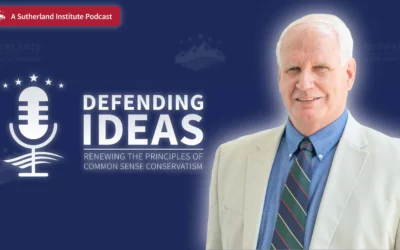
Written by William C. Duncan
September 14, 2023

The biblical story of Daniel and his associates being asked to eat foods forbidden by their religion in Daniel 1 represents an archetypal conflict between religious commitment and secular demands. That conflict had a happy ending because of a royal official willing to accommodate Daniel’s beliefs (at least on a trial basis).
Those types of conflicts still occur, as illustrated by two ongoing cases from the Pacific Northwest. Both cases involve state laws, one in Washington and one in Oregon, that require employer health insurance plans to pay for abortions if they offer health coverage to their employees. Both states offer some exemptions, including religious exemptions, that are narrow enough that many religious groups and nonprofits will not be eligible for them.
In Washington, the Cedar Park Assembly of God church is challenging the mandate. In Oregon, the mandate is being challenged by Oregon Right to Life.
Both organizations are religiously motivated and desire to offer insurance coverage to their employees, but without paying for abortion, which would violate their deeply held beliefs about the sanctity of life.
The religious organizations in these cases will have U.S. Supreme Court precedent on their side. That precedent clarifies that the right of free exercise is infringed when people of faith or religious organizations are required to do something at odds with their faith if other individuals or organizations are provided exemptions from the same requirement.
The irony of these cases is that one of the states, Washington, has successfully accommodated religious practice in different contexts. In 2019, that state’s legislature addressed the needs of religious university and college students – particularly those who are part of minority religious groups – who have religious obligations that may not be familiar to professors and administrators. The state law requires schools to “reasonably accommodate students who, due to the observance of religious holidays, expect to be absent or endure a significant hardship during certain days of the course or program.”
Washington has shown it can appropriately accommodate a wide range of religious views in the context of higher education. Surely it, and its neighbor to the south, can similarly accommodate a core belief of people of faith who conscientiously object to participating in ending the life of an unborn child. As the current laws make clear, exceptions are possible. Not only that, they are eminently just and (I would argue) constitutionally required.
As states wade into contentious issues that implicate the beliefs and consciences of others, the path of accommodation – which Washington has proven to be workable in higher education – becomes essential in areas including abortion. As it is, the failure of Oregon and Washington to follow the accommodation model is likely to result in protracted litigation. At the very least, other states are still in the position to choose a better way.

Insights: analysis, research, and informed commentary from Sutherland experts. For elected officials and public policy professionals.

-
Government pressure on religious believers to act in ways contrary to their faith is an obvious example of unconstitutional overreach.
-
Cases in Washington and Oregon – involving laws that require religious organizations to pay for abortion coverage for their employees – illustrate this problem.
-
However, Washington state has demonstrated it can effectively accommodate diverse religious practices in the past, and its prior approach offers a way out of the current situation.
Read More
Protecting property rights against government overreach
While governments can continue to regulate land use, these regulations and fees must be justified by a government interest and proportional to the effect of the development’s impact on that interest.
Do we need to care about the Utah State Board of Education?
For any Utah voters who also feel like K-12 public education is headed in the wrong direction, learning about the candidates running for a seat on the Utah State Board of Education (USBE) is a wise choice this election season.
Defending education choice the right way
Education choice has exploded in popularity across the nation in recent years. So why does it remain a contentious point of debate in some parts of the country?


